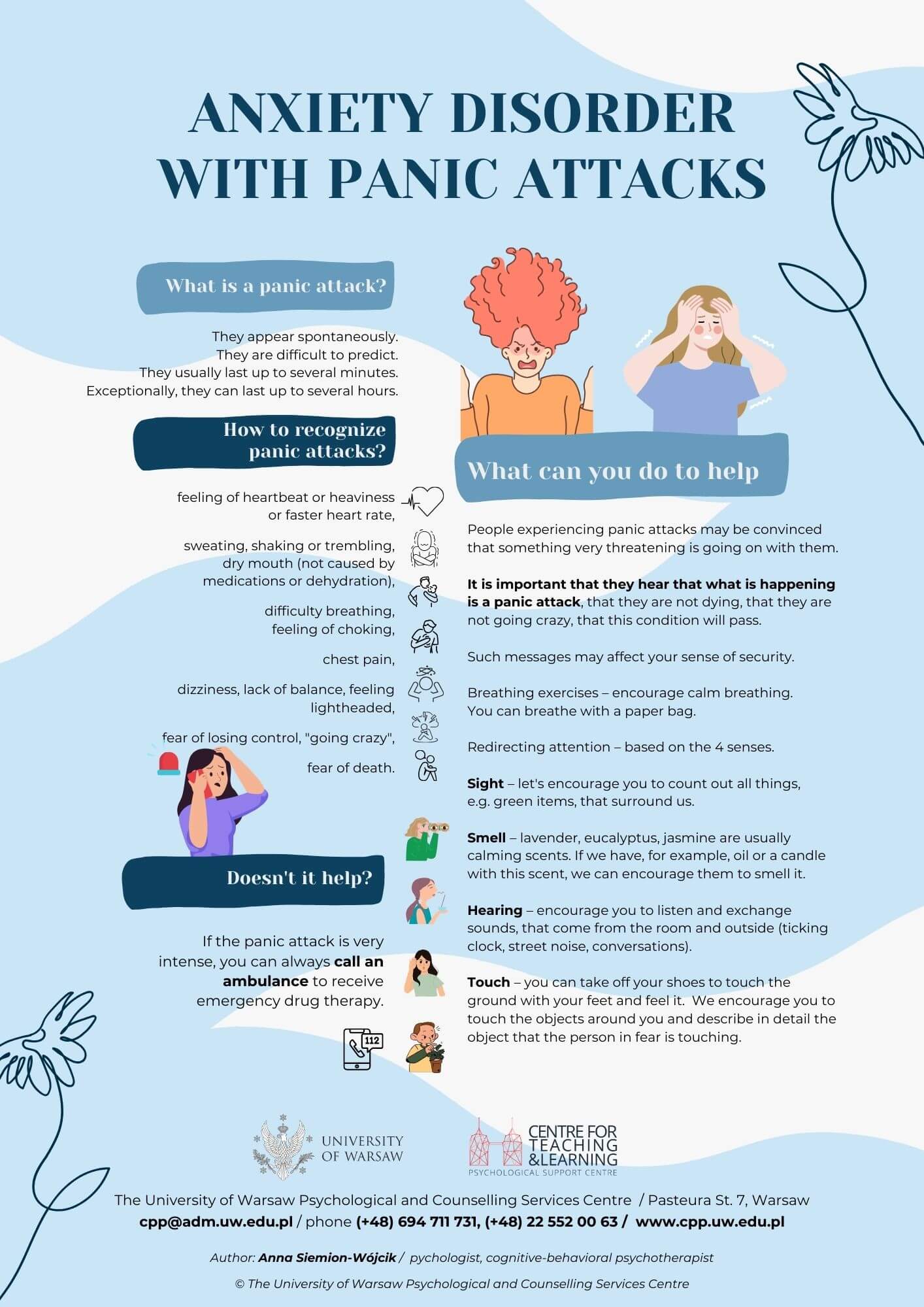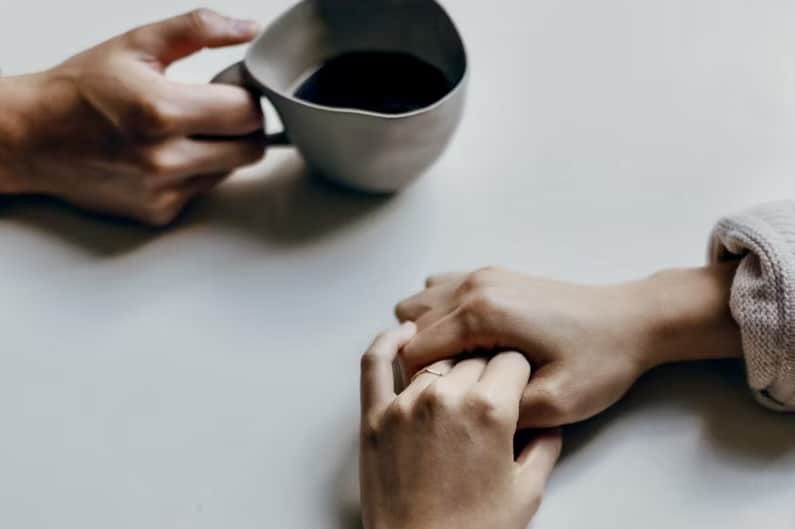Online support readily available with a licensed therapist for anxiety
Online support readily available with a licensed therapist for anxiety
Blog Article
Checking Out Various Strategies in Therapy for Anxiety Disorder for Long Lasting Change
When taking on anxiousness conditions, it's important to discover a range of therapy approaches. Each technique uses special understandings and tools to aid you handle your signs and symptoms properly. You might find that integrating techniques can yield the ideal outcomes. Nevertheless, recognizing the nuances of these approaches is essential to cultivating lasting adjustment. What happens if the appropriate mix could release a new level of psychological wellness for you?
Recognizing Stress And Anxiety Disorders: A Short Summary
Stress and anxiety conditions, which affect countless people worldwide, can substantially influence daily life. You might experience frustrating sensations of anxiety or fret that seem irrepressible. These feelings can result in physical signs like an auto racing heart, sweating, or even wooziness. Usual types of anxiousness conditions include generalised anxiousness problem, panic problem, and social stress and anxiety problem. Each has one-of-a-kind indications, but they all share a tendency to disrupt your regular and relationships.Understanding the origin of your anxiousness is important. It may stem from genetics, mind chemistry, or life experiences. Recognizing your triggers can assist you handle your actions much better. It's essential to keep in mind that you're not the only one in this struggle. Many individuals deal with comparable difficulties, and seeking assistance is a solid action toward sensation better. By finding out about stress and anxiety problems, you're currently on the course to understanding and handling your problem a lot more successfully.
Cognitive-Behavioral Treatment: Testing Adverse Thought Patterns
In Cognitive-Behavioral Treatment, you'll start by determining the adverse idea sets off that add to your anxiousness. As soon as you acknowledge these thoughts, you'll work with changing them with even more positive options. With each other, you'll develop reliable coping methods to help handle your anxiety in daily circumstances.
Recognizing Unfavorable Thought Triggers

Identifying the certain triggers behind your unfavorable thoughts can be crucial in taking care of stress and anxiety when you experience moments of distress. Begin by focusing on situations that prompt feelings of concern or concern. Is it a jampacked space, a forthcoming deadline, or a discussion with specific individuals? Write these circumstances in a journal. This will certainly aid you recognize patterns in your reasoning. Likewise, notification physical sensations that accompany your negative thoughts, like an auto racing heart or rigidity in your chest. By determining these triggers, you get understanding right into what's sustaining your anxiety. Recognizing these connections is the very first step in testing those ideas and inevitably restoring control over your psychological feedbacks.
Changing Thoughts With Positives
Testing negative idea patterns is a crucial action in changing your frame of mind and minimizing anxiety. You might typically locate yourself trapped in cycles of self-doubt or catastrophic reasoning. Instead of allowing these ideas determine your feelings, practice changing them with favorable affirmations or realistic choices. For instance, when you believe, "I can't manage this," change it to, "I can take care of obstacles one action at once." This basic adjustment can considerably affect your mood. Routinely determining and responding to these adverse ideas aids create a healthier internal discussion. Keep in mind, it takes time and effort, yet consistently practicing this technique can result in long-term adjustment, equipping you to deal with anxiousness with renewed self-confidence and resilience.
Structure Coping Techniques With Each Other
Replacing adverse ideas is just the start of managing anxiousness properly. To produce enduring change, you require to develop coping methods that equip you. Cognitive-Behavioral Treatment (CBT) helps you identify and test those purposeless thought patterns. Together, you and your therapist can discover how these thoughts effect your sensations and behaviors.Start by developing useful methods, like journaling or mindfulness workouts, that allow you to face anxiety head-on. When you encounter your worries slowly, you'll learn to respond in different ways.

Mindfulness and Acceptance-Based Approaches: Cultivating Present-Moment Recognition
As you navigate the intricacies of stress and anxiety, incorporating mindfulness and acceptance-based techniques can substantially improve your capability to cultivate present-moment understanding. By concentrating on the here and now, you'll discover that you can observe your ideas and feelings without judgment (Counseling services for anxiety). This technique aids you recognize your stress and anxiety without feeling bewildered by it.Engaging in mindfulness exercises, such as deep breathing, body scans, or directed meditations, allows you to ground on your own in your present experience. Acceptance-based techniques encourage you to embrace your emotions instead of battle versus them. When you accept your sensations, they lose their power over you.Incorporating these practices into your day-to-day routine can change how you reply to stress and anxiety. You'll establish strength and find out to browse difficult scenarios with better convenience. Inevitably, growing present-moment recognition lays the foundation for long lasting modification, empowering you to lead an extra fulfilling life
Direct Exposure Therapy: Confronting Concerns Gradually
Direct exposure treatment aids you confront your concerns in a gradual means, making it less overwhelming. You'll learn methods to encounter anxiety-provoking circumstances detailed, while likewise building coping strategies to handle your reactions. This approach equips you to take control and minimize anxiousness over time.
Progressive Exposure Strategies

When dealing with anxiety, progressively facing your concerns can be a powerful way to reclaim control. This technique, recognized as progressive direct exposure, includes gradually subjecting on your own to the situations or things that activate your stress and anxiety. Beginning with much less intimidating situations and slowly function your method up to more difficult ones. If you're terrified of public talking, you may begin by talking in front of a mirror, after that advance to sharing thoughts with a buddy, and eventually deal with a tiny team. Each step helps desensitize you to the concern, developing your confidence with time. Keep in mind, it's essential to speed find more info on your own and commemorate small success as you move through this process, enhancing your ability to take care of stress and anxiety properly.
Building Coping Strategies
Building efficient coping approaches is important for managing anxiety, specifically as you challenge your worries slowly - Counseling services for this page anxiety. One effective method is direct exposure treatment, where you begin by encountering your worries in a regulated fashion. Start with less daunting situations and slowly function your method up to more difficult scenarios. This progressive exposure aids desensitize you to anxiousness causes, making them less overwhelming.Incorporate leisure methods, such as deep breathing or mindfulness, to calm your mind throughout direct exposure. Track your development, celebrating little triumphes along the road to boost your confidence. Bear in mind, it's okay to take your time; the goal isn't excellence however consistent enhancement. By constructing these techniques, you'll you could look here equip on your own to navigate anxiety and welcome life more completely
Psychodynamic Therapy: Uncovering Origin Reasons of Anxiety
Psychodynamic treatment discovers the unconscious mind, exposing the origin of your stress and anxiety. By examining your ideas, sensations, and past experiences, this method aids you uncover underlying conflicts and unsolved concerns that may add to your existing anxiousness. You'll deal with a therapist to investigate youth experiences, partnerships, and psychological patterns that shape your responses today.As you acquire insight into these deeper layers of your mind, you'll start to acknowledge just how previous occasions affect your existing habits. This understanding can bring about catharsis, enabling you to refine emotions you could have suppressed.Through the therapeutic partnership, you can additionally recognize protection systems that might have developed in time, using a clearer course to transform. Eventually, psychodynamic treatment outfits you with the tools to address your stress and anxiety at its core, promoting enduring improvement in your emotional well-being.
Integrative and Alternative Strategies: Combining Strategies for Greater Efficiency
Incorporating numerous restorative strategies can improve your trip towards handling anxiousness better. By combining components from cognitive-behavioral therapy, mindfulness techniques, and alternative techniques, you can create a tailored method that addresses your distinct requirements. As an example, you could make use of cognitive-behavioral methods to challenge negative idea patterns while integrating mindfulness workouts to ground on your own in the here and now moment.Additionally, checking out alternative methods such as yoga or reflection can advertise relaxation and lower anxiety symptoms. This blend allows you to create better self-awareness and resilience.Experimenting with these varied approaches can aid you find what reverberates most with you. Keep in mind, it has to do with locating a synergy that functions, as opposed to adhering to a solitary approach. This integrative technique not only provides immediate alleviation however also cultivates lasting skills for managing stress and anxiety, empowering you to recover control over your life.
The Function of Assistance Solutions: Building Strength With Link
While it might appear that taking care of anxiety is a solitary trip, having a solid support group can play an essential duty in your strength. Bordering on your own with understanding friends, family, or support system develops a secure area where you can freely share your feelings and experiences. When you get in touch with others, you remind yourself that you're not alone in this struggle.These partnerships provide motivation and can offer practical coping strategies that have actually benefited others. It's additionally a possibility to acquire viewpoint; buddies can assist you see scenarios in different ways, reducing sensations of isolation.Moreover, psychological assistance cultivates a feeling of belonging, which can considerably relieve stress and anxiety signs. By leaning on your assistance system, you can build strength and tackle obstacles more properly. Bear in mind, connecting for assistance suggests strength, and it can make all the distinction in your trip toward managing stress and anxiety.
Regularly Asked Questions
What Are the Usual Signs And Symptoms of Anxiousness Conditions?
You could experience uneasyness, exhaustion, problem concentrating, impatience, muscle mass stress, and sleep disturbances. Physical symptoms can include rapid heart beat, sweating, and shivering. Acknowledging these indications early can help you seek ideal assistance and treatment.
The Length Of Time Does Treatment Generally Last for Anxiety Conditions?
Therapy for stress and anxiety disorders commonly lasts anywhere from a couple of weeks to numerous months. It actually relies on your specific demands, progression, and the methods your specialist uses to help you manage your anxiety properly.
Can Drug Be Utilized Alongside Treatment for Stress and anxiety?
Yes, medication can certainly be used along with treatment for anxiousness. Combining both techniques often enhances treatment effectiveness, aiding you manage signs and symptoms while checking out underlying concerns via counseling (Counseling services for anxiety). Constantly consult your health care company for personalized advice
Exist Self-Help Strategies for Taking Care Of Anxiety?
Yes, there are numerous self-help strategies for taking care of anxiety. You can exercise mindfulness, participate in normal workout, preserve a balanced diet regimen, establish a routine, and make use of deep breathing techniques to aid lower anxiousness signs efficiently.
Just how Do I Know if I Need Professional Aid for Anxiety?

Report this page